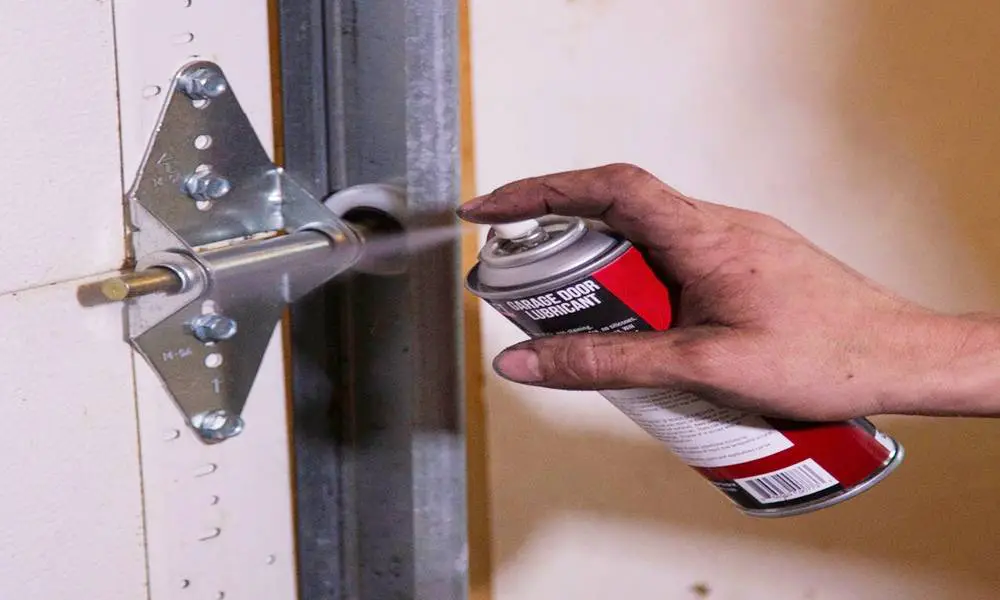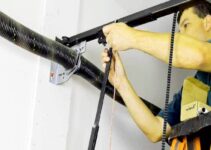Are you tired of the squeaky, sluggish movement of garage door? It might be time to give those wheels some much-needed lubrication. Neglecting this crucial maintenance task can lead to frustrating malfunctions and costly repairs down the line.
In this comprehensive guide, I’ll walk you through the process of lubricating garage door wheels like a pro, ensuring smooth operation for years to come.
Maintaining garage door might not be the most glamorous task, but it’s essential for ensuring its longevity and smooth functionality. One of the key maintenance steps is lubricating the wheels regularly. This simple yet effective process can prevent wear and tear, reduce noise, and extend the lifespan of garage door system.

Why Lubricate Garage Door Wheels?
Lubricating garage door wheels is crucial for several reasons:
- Smooth Operation: Proper lubrication reduces friction between moving parts, allowing the door to open and close smoothly.
- Noise Reduction: Lubricated wheels produce less noise, resulting in a quieter garage door operation.
- Prevent Wear and Tear: Lubrication helps prevent premature wear and tear on the wheels and tracks, prolonging the lifespan of your garage door system.
- Prevent Rust and Corrosion: Lubricants create a protective barrier against moisture, preventing rust and corrosion on metal components.
- Enhanced Safety: A well-maintained garage door operates safely, reducing the risk of accidents or injuries.
Steps to Lubricate Garage Door Wheels
Clean the Tracks
Before lubricating the wheels, it’s essential to clean the tracks thoroughly. Follow these steps:
- Remove Debris: Start by using a vacuum to remove any dirt, dust, or debris from the garage door tracks. Ensure thorough cleaning to prevent any obstruction to the smooth movement of the door.
- Wipe Down Tracks: Next, take a damp rag and wipe down the tracks to remove any grime or buildup that may have accumulated over time. Pay special attention to corners and crevices where dirt tends to accumulate.
- Inspect for Damage: Carefully inspect the tracks for any signs of damage, such as bends, dents, or misalignment. Addressing these issues before lubrication is crucial to prevent further damage to the door system.
Lubricate the Rollers and Hinges
Once the tracks are clean, it’s time to lubricate the rollers and hinges. Here’s how:
- Choose the Right Lubricant: Select a lithium-based grease or specialized garage door lubricant for optimal results. Avoid using WD-40 or oil, as they can attract dirt and grime, leading to increased friction.
- Apply Lubricant to Rollers: Spray the chosen lubricant onto the rollers, focusing on the area where the roller meets the stem. Ensure thorough coverage to facilitate smooth movement.
- Lubricate Hinges: Apply lubricant to each hinge, starting from the edge of both sides of the bracket and working your way outward. This ensures that all moving parts are adequately lubricated for optimal performance.
- Wipe Excess Lubricant: After lubricating the rollers and hinges, use a clean, damp rag to wipe off any excess lubricant from the wheels and hinges. This prevents drips and ensures a clean finish.
You may also like:
Test the Door
Once you’ve lubricated the wheels and hinges, it’s essential to test the garage door to ensure smooth operation. Open and close the door several times to distribute the lubricant evenly and identify any remaining issues. If you notice any unusual noises or stiffness, further adjustments may be necessary.
Conclusion
Regular lubrication of garage door wheels is essential for maintaining smooth and efficient operation. By following the steps outlined in this guide and conducting regular maintenance, you can prolong the lifespan of your garage door system and ensure reliable performance for years to come.
Remember, proper lubrication not only reduces noise and improves operation but also prevents costly repairs down the line. So, don’t wait until garage door starts acting up take proactive steps to keep it running smoothly today!
FAQs
How often should I lubricate my garage door wheels?
It’s recommended to lubricate your garage door wheels every six months to maintain optimal performance. However, if you notice any signs of stiffness or noise, lubrication may be needed more frequently.
Can I use WD-40 to lubricate my garage door wheels?
No, WD-40 is not suitable for lubricating garage door wheels. While it may provide temporary lubrication, it can attract dirt and grime, leading to increased friction and potential damage to the door components. It’s best to use a specialized garage door lubricant for long-lasting results.
What should I do if my garage door is still noisy after lubrication?
If your garage door continues to be noisy after lubrication, there may be other underlying issues causing the noise. Inspect the tracks, rollers, and hinges for any signs of damage or wear. Tighten loose hardware and consider consulting a professional if the noise persists.
Can I use oil instead of grease for lubricating garage door wheels?
No, oil is not recommended for lubricating garage door wheels. While it may provide temporary lubrication, it can quickly attract dirt and debris, leading to increased friction and potential damage to the door components. It’s best to use a specialized garage door lubricant for optimal results.
How do I know if my garage door wheels need lubrication?
Signs that your garage door wheels need lubrication include increased noise during operation, sluggish movement, or visible signs of wear on the wheels or tracks. Regular maintenance, including lubrication, can help prevent these issues and keep your garage door functioning smoothly.
Is lubricating garage door wheels a DIY task?
Yes, lubricating garage door wheels is a relatively simple DIY task that can be performed with basic tools and lubricants. If you’re unsure or uncomfortable performing the maintenance yourself, it’s always best to consult a professional garage door technician.


